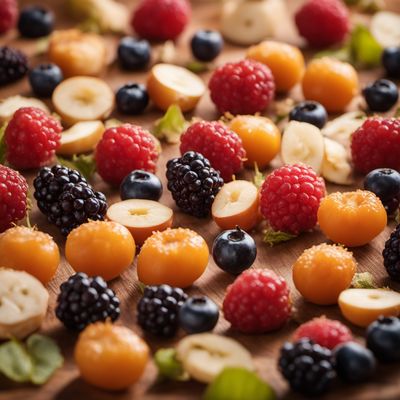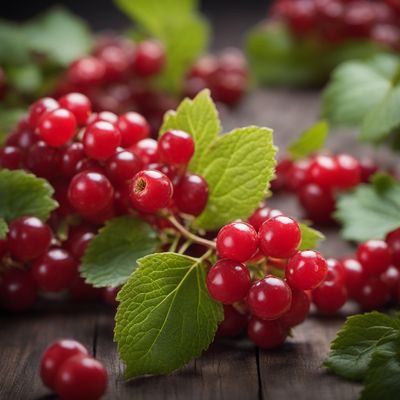
Ingredient
Elderberries and similar-
The Immunity-Boosting Power of Elderberries
Elderberries are small, dark purple berries that have a tart and slightly sweet flavor. They have a juicy texture and are often used to make jams, jellies, syrups, and wines. Similar fruits include blackberries, blueberries, and raspberries, which share similar characteristics and culinary uses.
Origins and history
Elderberries have a long history of medicinal use and are believed to have originated in Europe. They were traditionally used to treat colds, flu, and respiratory infections. Elderberries have also been used in traditional cuisines around the world for their unique flavor and versatility.
Nutritional information
Elderberries and similar fruits are rich in antioxidants, vitamins, and minerals. They are particularly high in vitamin C and have been shown to have immune-boosting properties. They also contain anthocyanins, which are beneficial compounds that give them their dark purple color.
Allergens
Elderberries and similar fruits may cause allergic reactions in individuals who are sensitive to berries or have pollen allergies. It is recommended to consume them in moderation and consult with a healthcare professional if you have known allergies.
How to select
When selecting elderberries or similar fruits, look for berries that are plump, firm, and have a deep purple color. Avoid berries that are mushy, wrinkled, or have signs of mold. If purchasing frozen berries, ensure that they are free from ice crystals and have been properly sealed.
Storage recommendations
To store elderberries and similar fruits, gently wash them and remove any stems or leaves. Pat them dry and place them in a resealable bag or an airtight container. Store them in the refrigerator and use them within a week for optimal freshness. Alternatively, they can be frozen for longer storage.
How to produce
Elderberries and similar fruits can be grown in home gardens or purchased from farmers markets or specialty stores. They prefer well-drained soil and full sun. Harvest the berries when they are fully ripe and have a deep purple color. Remove the stems before using.
Preparation tips
Elderberries and similar fruits can be used to make jams, jellies, syrups, pies, and wines. They can also be added to smoothies, desserts, or used as a topping for pancakes or yogurt. Elderberry syrup is a popular natural remedy for colds and flu.
Substitutions
Blackberries, blueberries, and raspberries can be used as substitutes for elderberries in recipes. They have similar flavors and can be used interchangeably in most cases. However, elderberries have a more distinct tartness and earthiness compared to these fruits.
Culinary uses
Elderberries and similar fruits are commonly used in various culinary preparations, including jams, jellies, pies, and syrups. They are also used in beverages like wines, cocktails, and herbal teas. In traditional cuisines, elderberries are often used in savory dishes, such as sauces for game meats or as a glaze for roasted poultry.
Availability
Elderberries and similar fruits are commonly available in Europe and North America. They can be found in farmers markets, grocery stores, or specialty stores. Elderberries are also cultivated in other parts of the world, such as Australia and New Zealand.
More ingredients from this category » Browse all

Che berries
The Exotic Delight: Che Berries

Midland hawberries
The Hidden Gems of Midland: Exploring the Delights of Hawberries

Red elderberries
The Vibrant Gems of the Forest

Guelder rose berries
Guelder Rose Berries: Nature's Vibrant Gems

Sorb fruits
The Sweet and Tangy Delights of Sorb Fruits

Silverberries
The Shimmering Gems of the Culinary World

Elderberries
The Power of Elderberries

Saskatoons
The Sweet Berry of the Prairies

Bayberries
The Hidden Gems of the Forest

Riberries
The Vibrant Delight

Phalsa fruits
The Exotic Jewel of Summer: Phalsa Fruits

Dwarf elderberries
The Tiny Powerhouse: Exploring the World of Dwarf Elderberries